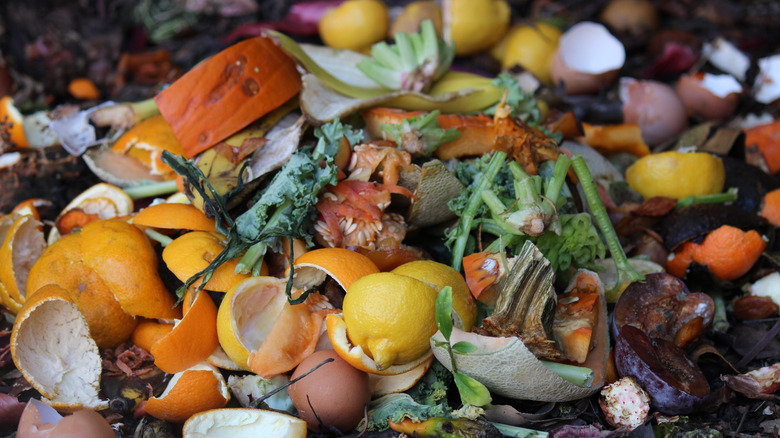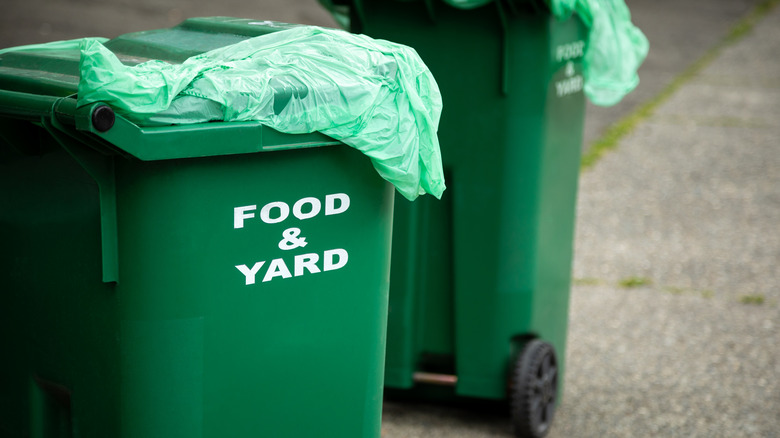The USDA Is Investing Nearly $10 Million To Make Composting A Higher Priority
While developing an interactive map of compost programs in cities around the country, GreenBlue found that roughly 27% of Americans have access to "some kind of composting program" that accepts food waste and/or biodegradable packaging. By comparison, a January 2022 report released by the American Forest & Paper Association found that 94% of Americans have access to paper and paperboard recycling programs.
According to the U.S. Environmental Protection Agency (EPA), composting is essential for supporting nutrient and moisture levels in soil, in turn reducing the need for environmentally harmful pesticides and fertilizers, and safeguarding against soil erosion. What's more, the World Wildlife Fund says food waste that goes into oxygen-barren landfills releases methane gas, which is "even more potent than carbon dioxide." While compost bins might be more common than they were a decade ago, the habit of responsibly disposing of banana peels and egg shells is still catching up to the common practice of tossing a paper cup into a blue bin.
The U.S. Department of Agriculture (USDA) wants to change that. On Thursday, the federal department announced its plan to invest more than $9.4 million into "innovative, scalable waste management plans." Here's what that means for you and that bag of onion skins languishing in your freezer.
More composting by 2025
The Feb. 2 announcement from the USDA detailed a huge step toward increasing the accessibility of compost programs across the country. By investing nearly $10 million in 45 cooperative agreements with support from the American Rescue Plan Act, the department hopes to normalize composting in 27 states (and one territory) "between 2023 and 2025." The project gives a major boost to the USDA's most recent investment, which allocated $3 million to 37 agreements between 2020 and 2021.
"These Compost and Food Waste Reduction projects play important roles in building resilient, local food systems, including strong food recovery networks and food waste reduction solutions that benefit farmers and communities," the USDA's Natural Resources Conservation Service Chief, Terry Cosby, said in a statement. Beneficiaries of the investment include the Geneva Compost and Food Waste Diversion in Geneva, New York, which will distribute extra food to community members in need, in addition to standard composting.
For those not yet included in the project, the USDA isn't the only organization responsible for developing compost programs. In January, City Limits reported that the New York City Sanitation Department installed more than 200 compost-friendly "Smart Bins" around the five boroughs, which are accessible through the NYC Compost app. That's is a major win for those whose zip codes don't include curbside compost pickups.

